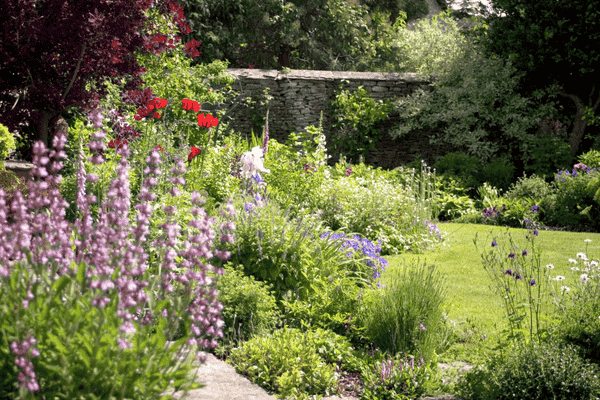If you create a garden or other outdoor space which encourages wildlife, you can look forward to numerous benefits. You’ll be contributing to local biodiversity, for a start, and enhancing your nearest environment’s overall health.
Your own wellbeing will also almost certainly improve, and you’ll feel a greater connection with nature. What’s more, apart from anything else, you’ll have a more relaxing, better-looking space to enjoy.
Here’s our round-up of what you can do to attract a greater variety of species to your garden.
- Provide food
There are various ways to do this:
- Plant a varied range of flowers: Choose plants offering pollen and nectar for butterflies, bees and other insects which carry out essential fertilisation. Avoid excessive use of highly bred cultivars (plant varieties produced in cultivationby selective breeding) with big or double flowers, since many of these have little to no nectar or pollen.
- Hang up bird feeders: If you provide a combination of peanuts and seeds plus suet, you’ll help attract a range of bird species all year.
- Think about having a compost heap: This attracts worms and insects, which birds and hedgehogs can eat. It also speeds up the natural recycling of nutrients if you compost all your garden waste – plus it makes for healthy soil.
- Leave some wild sections: If some parts of your garden have longer grass and leaf litter, a number of small creatures and insects can enjoy the resulting food and shelter. If you scatter wildflower seeds you create a meadowland, a mixture of grasses and wildflowers. These low-maintenance features attract insects – and, since the 1950s, more than 96% of our diverse, species-rich meadows have vanished.
- Provide water
Obviously, if you also offer water sources, more wildlife will visit your garden. Here are some ideas:
- Get a bird bath: Keep the water in the bath clean, and ensure birds cab access it all year round.
- Build a pond: Even if it’s a small one, a pond will become a wildlife haven, offering amphibians and insects a habitat and drinking water. In fact, it’s the single easiest way to give your garden ‘wildlife value’.
- Have a water butt: Collect rainwater for plants and to keep your pond topped up.
- Provide shelter
Along with food and water, this is something which all species clearly need. Here are some things to try:
- Don’t be overly tidy: This may feel counter-intuitive if you’re a neat freak, but if you leave some sections of your space uncultivated, with leaf litter and fallen branches, this gives wildlife a habitat.
- Install a bug hotel: Insects and other small creatures can live, nest and hibernate in these small structures, typically made from natural materials.
- Plant trees and hedges: This provides birds and other creatures with nesting and roosting sites. And if you grow a mix of trees, shrubs and climbers, or a mixed hedge (i.e. one comprising a variety of plant species rather than just a single type), you offer both food and shelter.
- Build rockeries and log piles: Again, this will give wildlife shelter, including amphibians and reptiles. Decaying wood, especially in a shady spot, gives a range of wildlife somewhere to live, including fungi species and stag and bark beetles. Large, natural logs are ideal.
- Protect wildlife by gardening sustainably
Words like sustainably and sustainable are bandied around an awful lot these days, but you can apply the concept to your own gardening. Put simply, it just means minimising your use of finite resources (such as oil) and focusing instead on those produced by natural process, such as wind or solar power.
Synthetic pesticides are toxic – and not just to the organisms targeted. They’re also energy-intensive to produce, so ideally you’d use them as a last resort. Peat-based composts are also things to avoid where possible.
Finally, pick sustainably sourced timber for outdoor furniture and recycle and save water wherever you can. All of these steps will minimise impact on the environment – and help protect wildlife.
Call in the experts: professional design and build services from AS Landscapes
At award-winning AS Landscapes, we’ve been in the business for more than 20 years, and our Surrey-based landscape design and build company also covers Windsor and Ascot. We specialise in all types of hard landscaping and create planting schemes while also offering a full design service.
We fully appreciate why, increasingly, people want to create their gardens with wildlife and the environment – and we can help you create a haven for myriad species. Get in touch today for an informal chat about what you need.
